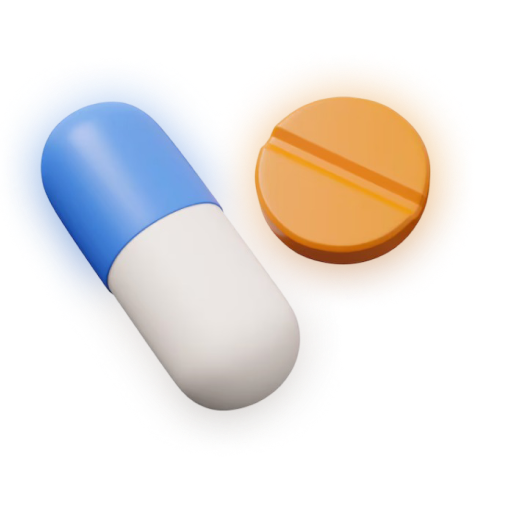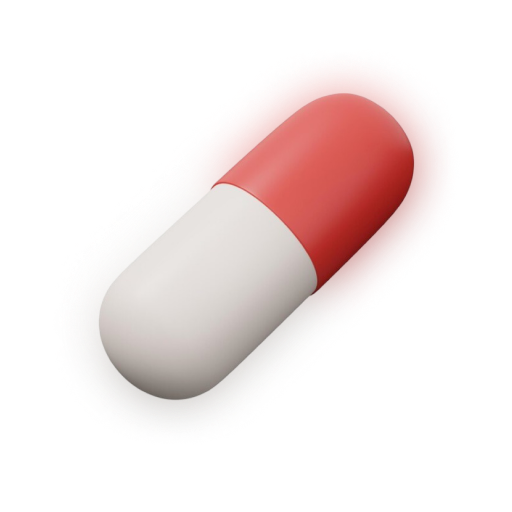Naproxen 500 mg Tbl 20 Stk
5α-reductase inhibitor for enlarged prostate


Description
Generic Name: Naproxen
Brand Name: Aleve, Naprosyn, Anaprox
Drug Class: NSAID
This is a prescription medicine, which requires a valid prescription!
Indications
- Pain relief: Mild to moderate pain (e.g. musculoskeletal, dental, back pain)
- Inflammation: Arthritis (osteoarthritis, rheumatoid arthritis), bursitis, tendinitis
- Dysmenorrhea: Menstrual cramps
- Fever reduction (less common at 500 mg dose)

- Inhibits cyclooxygenase (COX-1 and COX-2) enzymes
- Reduces prostaglandin synthesis → decreases inflammation, pain, and fever
- Longer half-life than ibuprofen → allows for twice-daily dosing
- Form: Oral tablet, 500 mg
- Typical Dose:
- Initial: 500 mg orally, followed by 250 mg every 6–8 hours as needed
- Maximum: 1,000–1,250 mg/day (depending on indication and duration)
- Should be taken with food or milk to minimize gastrointestinal upset
- Use lowest effective dose for shortest possible duration
- Common:
- Gastrointestinal upset (nausea, heartburn)
- Headache
- Dizziness
- Edema (fluid retention)
- Less Common:
- Elevated liver enzymes
- Skin rash
- Ringing in the ears (tinnitus)
- Serious (Rare):
- GI bleeding, ulcers, or perforation (risk increases with age, alcohol, other NSAIDs)
- Cardiovascular events (MI, stroke — especially with prolonged use)
- Kidney dysfunction
- Severe allergic reactions (anaphylaxis, Stevens-Johnson syndrome)
- Known hypersensitivity to naproxen or other NSAIDs
- History of asthma, urticaria, or allergic reactions after NSAID use
- Active GI bleeding or peptic ulcer
- Severe heart failure
- Advanced renal or hepatic disease
Information
Warnings and Precautions
- Use with caution in patients with cardiovascular risk factors
- Avoid in late pregnancy (≥30 weeks gestation — risk of fetal ductus arteriosus closure)
- Monitor renal function during prolonged use
- May mask signs of infection or fever
Drug Interactions
- Anticoagulants (e.g., warfarin): Increased bleeding risk
- Other NSAIDs or corticosteroids: Increased GI toxicity
- ACE inhibitors, diuretics: May reduce antihypertensive effect and harm kidneys
- SSRIs: Additive risk of GI bleeding
- Lithium: Naproxen may increase lithium levels
Request Now
Direct Enquiries
For any inquiries, please feel free to contact us directly via email at the link below.
pharmacy@doctorworld.eu
PLEASE AVOID SELF-DIAGNOSIS AND SELF-MEDICATION!
Our website content is posted for informational purposes only. It is not intended to be used for primary diagnoses-making and should not replace a consultation with a professional health care provider. If you have any health issues or complaints, please consult your primary physician.
Health care data provided for informational purposes is not an alternative to an in-person physician consultation.